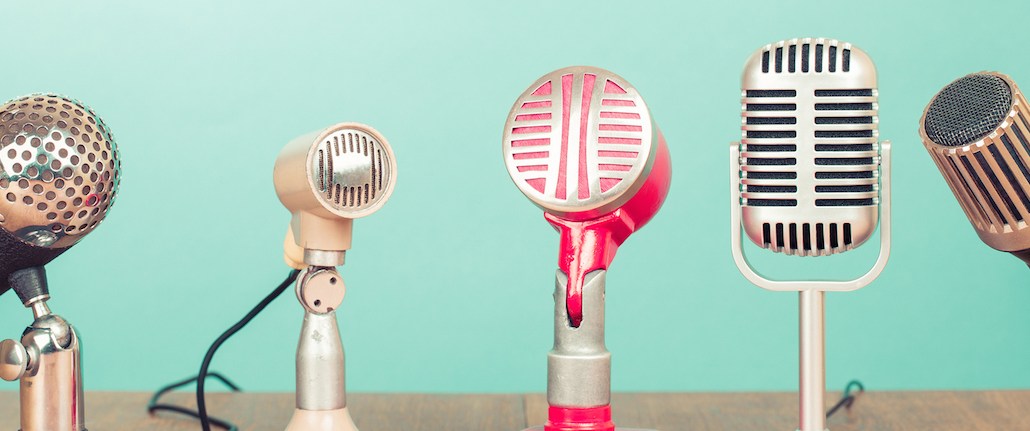Save 50% on a 3-month Digiday+ membership. Ends Dec 5.

Podcasts, aided by the smash hit “Serial,” are having a moment. They’ve broken through with mainstream audiences, they’ve piqued interest from brand advertisers. Ad agencies — when they’re not busy producing their own podcasts — finally feel comfortable discussing podcast buys with clients.
Despite these gains, the podcast industry has been mostly unable to tap into what could become its largest listener segment: people who use phones with Google’s mobile operating system, Android.
“Android devices are the majority of smartphone market, but they’re not the majority of podcast access,” Seth Lind, director of operations at popular podcast “This American Life,” told Digiday.
Much of Apple’s dominance is due to podcasting’s legacy. As the name implies, podcasts initially became popular on iPods, and iTunes was the primary means of disseminating and downloading podcasts. IPods ran on iTunes, thus making Apple the de facto ruler of the podcasting ecosystem.
And that reign persists today. Lind said 65 percent of the mobile Web visits for “This American Life” come from devices that run on Apple’s iOS mobile operating system, with just 30 percent from Android. And the gap is even “more stark” when it comes to downloads, he said; he approximated that iOS accounts for 90 percent of the show’s downloads.
Other music platforms — SoundCloud, Stitcher — have entered the industry, but their share of listening is negligible relative to Apple’s, according to Erik Diehn, vp of business development at Midroll Media, a podcast network that sells advertising on popular shows “Comedy Bang Bang,” “WTF with Marc Maron” and “How Did This Get Made?”
“There’s basically Apple and then everybody else,” he said.
Ad position: web_incontent_pos1
But Google could be on par with Apple were it to follow Apple’s lead and create a native podcast app for Android users, Diehn added. And that would equate to surge of potential new listeners — with 98.5 million users in the U.S., Android commands 51.7 of the smartphone software market, according to market research firm eMarketer. Apple is No. 2 with 43.3 percent.
Google declined a request to comment.
Android users can access podcasts, but it’s just not easy for them to do so, Lind explained. And that difficulty partially explains why the medium is so skewed toward iOS. “On Android today, the ecosystem is much more fragmented than on Apple,” Diehn said.
IPhones now come with an Apple-created podcast app preloaded, making it easier for iPhone owners to find podcasts and start listening. Android offers no such app, let alone one that comes stock, meaning users have to go through the extra step of finding and downloading a third-party podcast app before they can hear their favorite shows.
“In the way that Apple has made the podcasting app a default, if Android did the same, it would encourage listening,” Lind said.
Ad position: web_incontent_pos2
Google’s entry into the podcasting market could also bring new brand advertisers to the medium. Whereas Apple is defiantly not an advertising company, Google is. And it could extend its pre-existing relationships with brand advertisers to podcasters, helping them monetize as it already does with app developers in its Google Play store or publishers in its display ad network.
Currently, podcast advertisers tend to be venture capital-backed small businesses running direct-response campaigns. Both Diehn and Lind said that while Google would certainly help provide demand from brands, they believe Google would only provide a complementary ad revenue stream.
“Google is an advertising company, but they’re an algorithmic, automated advertising company. And the ads we sell can’t be sold through an automated mechanism,” Diehn said.
Diehn was referring to ads voiced by the podcast hosts themselves, podcasting’s version of native advertising. And like native advertising with publishers, they cost a premium. Some host-voiced ads go for a $50 CPM, Lind said.
Google would be able to sell “pre-recorded canned spots” for less, Diehn said.
Still, the opportunity on Android is “huge,” according to Lind.
“Demographically, Android should be great for podcasts,” Diehn said, citing Android’s popularity among young, early adopters. “But it requires a lot more effort on Android’s part.”
Homepage image courtesy Shutterstock
More in Media

What publishers are wishing for this holiday season: End AI scraping and determine AI-powered audience value
Publishers want a fair, structured, regulated AI environment and they also want to define what the next decade of audience metrics looks like.

Digiday+ Research Subscription Index 2025: Subscription strategies from Bloomberg, The New York Times, Vox and others
Digiday’s third annual Subscription Index examines and measures publishers’ subscription strategies to identify common approaches and key tactics among Bloomberg, The New York Times, Vox and others.

From lawsuits to lobbying: How publishers are fighting AI
We may be closing out 2025, but publishers aren’t retreating from the battle of AI search — some are escalating it, and they expect the fight to stretch deep into 2026.
Ad position: web_bfu
